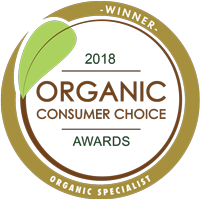| item(s), Total: $0.00 View Cart |
| Shopping cart is empty. |
Hello and welcome to May!- hasn't it been a good start to Autumn so far; with some fantastic early rain? I know the weeds are doing well at our place! :-DWe have just come out of the Perth Garden Festival last weekend; so apologies that the newsletter is a little late. It was a good show - everyone I spoke to had good things to say about the range of stalls and the excellent program of speakers that ran every day; there was something for everyone!Congratulations to Jacqui and Nay who were our Facebook winners of free tickets to the Show - and thanks to many of you who stopped by to say hello! The Vegepods were popular again this year; below is a picture from our display. The vegies in it Nick Bell planted at his workshop on 5th March & they are lush, healthy and bug-free! Remember if you're a Facebook user to pop over and 'Like' our page to stay up to date with news ~ I post things most days.Speaking of workshops, don't forget to check out our Events page on our website - we've got more dates pencilled in right through to Spring; so mark your calendar and watch for your opportunity to book. So many good things!! This weekend Nick is presenting a workshop all about lawns - whether you have an established lawn or are contemplating a new one; Nick will teach you how to get it right & have it looking fantastic, using less water and fertiliser. For full details, click here.We hope to see you soon @ GLSC - remember we're open 7 DAYS for your convenience and deliver all over the metro area - so next time you need garden goodies, pop in or jump online.
Have a great month in the garden!Cheers, Linda & The Team @ The Green Life Soil CoIn this newsletter:Jobs to do in the garden now Jobs to do in the Garden
What to Plant NowArtichokes - Globe AND Jerusalem. (Limited amount of Jerusalem Artichoke corms are available @ GLSC). Broad Beans, Broccoli, Cabbbage, Cauliflower, Chives, Coriander, Dill, Garlic, Kale, Kohl rabi, Leek, Lettuce, Onion, Parsnip, Potato (Dutch Cream & Delaware varieties available @ GLSC), Peas, Radish, Rocket, Silverbeet, Spring Onion, Strawberries,Turnips. Also lots of other herbs like Mint, Parsley, Oregano, Rosemary, Thyme, Sage - just avoid Basil now as it is becoming too cold for it to grow. See our FREE downloadable planting guides here for lots more information on what to plant now (and how to grow it!) Introducing The Green Life Soil Co!Yes - really. A narcissistic article all about us! - or rather; our SOILS. We know some of you have used our soils before; but do you know WHY we do what we do; and add the various inputs we use? Hopefully you know we're not just about vegie gardens (although it seems that's something we have a bit of a reputation for). We believe we offer a very unique range of products, and we'd love to help you (and your family, neighbours and friends) grow a better garden here in Perth.
What is so different about gardening in Perth?Paul: "People who emigrate here are often stunned when they see what we call 'soil' - if you can create a good garden here, you can garden ANYWHERE! Turning sand into soil takes time and effort; but eventually you can create a good loamy soil which uses less inputs & outside resources. We want to support customers to achieve that." So why does Green Life Soil Co make their own mixes?Paul: "It gives us control over the quality of the end product. We can offer something different to our customers that can solve their gardening issues by tailoring ingredients to their specific needs. Food plants in particular need to be grown in nutrient rich soil - otherwise you are not getting anything much out of your vegetables other than water and fibre. Having seen what was available elsewhere; we felt we could and should provide something better to people. Also, many of the commercial mixes around town would not be suitable for organic certification, based on the sources of their inputs. We decided it was worth going the extra step to ensure people got contaminant free soil to grow food for their family." What are you trying to achieve when you are creating a soil recipe?Paul: "They key to successful growing is to provide what the plant needs. Some factors (like microclimate/water) are beyond Green Life's control; but we can think about the plant group and try to create the ideal growing medium for the customer to grow it in. We look at the soil structure, nutrition, and micro-organisms that will benefit that plant and work on providing those key elements. We are continually trying to find better ways to do this as more research is done on the relationship between plants, microbes and nutrition. Our current focus is on establishing the correct balance between nutrients. Ultimately soil is a natural, living organism. We can't tip the scales too far any one way or things change too drastically, and that's when problems arise." Why do you have so many different soil products?Paul: "A plant that originated from a tropical rain forest has completely different requirements to one that grows in the desert regions of Australia. Plus everybody has different base soils to begin with - some are better than others. So we have to mix & match components to best suit where people are starting from (their existing garden) and where they are wanting to end up (with healthy plants). It can get confusing but we try to help people by asking questions; and we make recommendations based on that. Our business vision is "Empowering everyone to grow a sustainable, healthy garden" - what this means for a lawn isn't the same as for hanging baskets. Rather than providing a 'one size fits all' soil, we prefer to give options."Lastly - What do you personally love about owning the Green Life Soil Company?Paul: "I love spending time in the garden and the permaculture philosophy, so I enjoy helping others to appreciate it, too. I get to play with cool things like a microscope and brix meter and I am always learning new things. Watch this space for improved products!"
(Editor's note: If you have any questions about our products - we are happy to talk with you!) Slugs & Snails
Snail Pellets.Most of these around are highly toxic - the blue & green coloured ones in particular. They can kill pets (if ingested) and rats (not necessarily a bad thing!) - but do we really want these nasty toxins breaking down into the soil around our vegetable plants? Not really. The least toxic option are the iron based pellets. For many years we have stocked 'Multiguard' pellets. They work, and are reportedly OK for soil microbes, birds and pets - although there are some reported cases of iron poisoning in dogs from these pellets; but it does seem to involve dogs eating a large amount of the pellets in relation to their body size.While Multiguard have been the better option to use, they aren't allowed to be Certified Organic, due to their use of ETDA - a chelating agent that is a known carcinogen. (Unfortunately ETDA is widely used in MANY conventional household products - so you are unlikely to eliminate your exposure to it by not using Multiguard.) But there is some GOOD NEWS. Another company has recently received Organic Certification on their snail & slug pellets - and we have a shipment of Protect-us Slug & Snail Killer on its way to GLSC. It will be added to the online shop & I'll post about it on FB when it arrives.
Traps.Snail traps (a container with openings to allow slugs/snails to enter; usually buried at ground level) are a good way to use snail pellets if you are worried about pets and other creatures accessing them. A lid on your trap will keep out rain & overhead reticulation, and can even be taped down to prevent curious dogs having a go.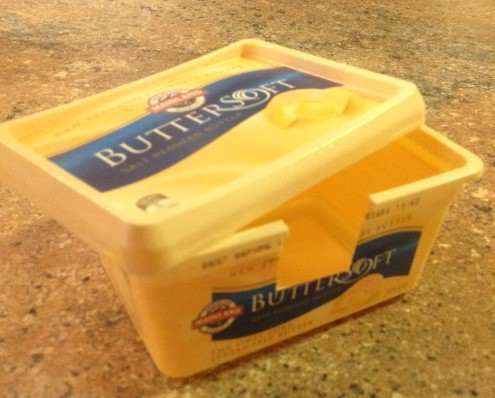 But snail traps also work really well if you use BEER. Yep, any beer will do - pour a good 2-3cms into the bottom of the trap and leave it out overnight. The snails will be attracted to it, drink it & die! If you drink beer from cans, leave a centimetre or two at the bottom of the can (difficult, I know) and lay the can on its side in the garden, best positioned for access to the opening. Check in the morning - the snails are likely to have found it. A word of caution - if you get larger lizards or snakes visiting your garden; they may be tempted to sample the beer too, and get stuck, which is not what a good nature-loving gardener wants. Check the cans and don't leave them around longer than necessary. But snail traps also work really well if you use BEER. Yep, any beer will do - pour a good 2-3cms into the bottom of the trap and leave it out overnight. The snails will be attracted to it, drink it & die! If you drink beer from cans, leave a centimetre or two at the bottom of the can (difficult, I know) and lay the can on its side in the garden, best positioned for access to the opening. Check in the morning - the snails are likely to have found it. A word of caution - if you get larger lizards or snakes visiting your garden; they may be tempted to sample the beer too, and get stuck, which is not what a good nature-loving gardener wants. Check the cans and don't leave them around longer than necessary.Purpose made snail traps are available; however it is easy to make your own from small plastic containers (butter or margarine containers are ideal - see photo above). Remove the lid, cut away an opening from the top edge, then replace the lid and voila! Ready to use. Bury it so the opening is flush with the soil so the trap doesn't fill up with dirt but insects can get easy access.
Copper tape & Copper wire.Snails & slugs don't like to cross copper - it creates an electric 'shock' with their slime that they will avoid. Copper wire can be looped around pots, or wound around the legs of plant stands. It is re-useable and practical. Copper tape (with an adhesive backing) is also available that can be stuck to raised garden beds, pots, etc. Copper tape rolls available @ GLSC $10 each.
Physical barriers.Anything hard and abrasive will deter slugs & snails. Dry sawdust, crushed eggshells, coffee grounds, Diatomaceous Earth - all these will deter snails & slugs; but the problem is keeping them DRY. Once these materials are wet, they lose their effectiveness (the possible exception is coffee grounds - see next point!). It may work well if you have a garden area under a patio or in a greenhouse; but watch your watering practises.Coffee is said to be a potent snail killer - make a strong plunger and dilute 1:3 with water and spray around your garden and on vunerable plants.
Go out at night with a good torch (especially after it has been raining!) and you'll find the snails & slugs out and about. Pick them off (use gloves if you like) and squish them! If you're too squeamish to do that, take out a bucket half full of warm water with a couple of tablespoons of salt dissolved in it, and drop the snails in. The salt will kill them for you. Doing this a few times over a week or two will make a HUGE dent in the population.
|



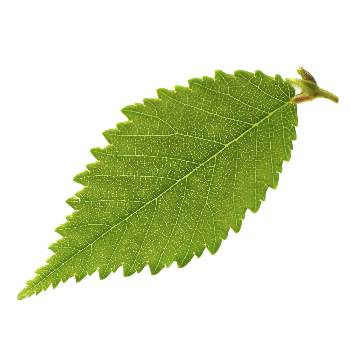
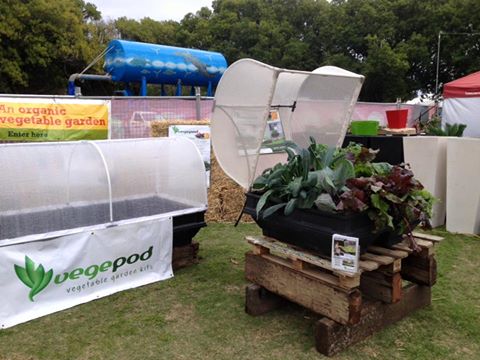
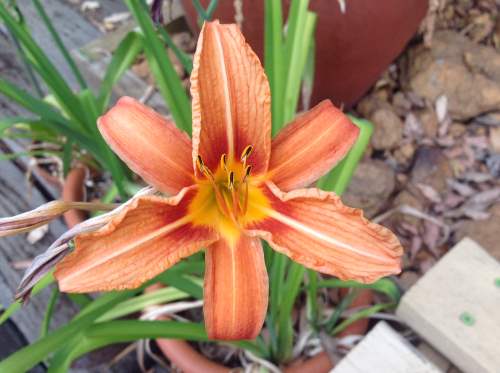 Cut back & divide perennials - clumps of daylily, iris, garlic chives, globe artichoke - these are all things in my garden that are needing some attention now.
Cut back & divide perennials - clumps of daylily, iris, garlic chives, globe artichoke - these are all things in my garden that are needing some attention now.
 Here Paul (our 'soil doctor') gives an insight into how we come up with our soil mix recipes:
Here Paul (our 'soil doctor') gives an insight into how we come up with our soil mix recipes: Wet weather and these little slimy critters seem to appear out of nowhere and can devour your plants overnight! There are things you can do to get on top of their numbers, and here are some ideas:
Wet weather and these little slimy critters seem to appear out of nowhere and can devour your plants overnight! There are things you can do to get on top of their numbers, and here are some ideas: Collect & Conquer.
Collect & Conquer.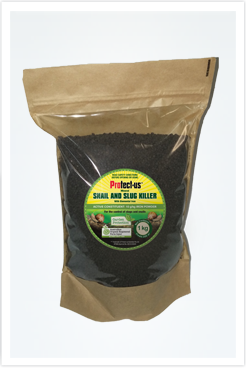
 Tass1 Trees is having an OVERSTOCKED CLEARANCE AUCTION
Tass1 Trees is having an OVERSTOCKED CLEARANCE AUCTION














